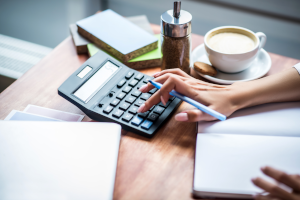Budgeting Made Easy

What is a Budget?
Don't be intimidated by budget talk — it's actually very simple!
- A budget tracks your income and expenses. It shows you what money is coming in — such as your paycheck — and what money is going out — like your rent and utility bills.
- A budget creates a plan for your money. It shows you what your spending patterns are, allows you to better manage your expenses, and helps you save money in the short and long term.
Why Should I Have a Budget?
Anyone that has income and expenses will benefit from creating a budget, and you'll see the benefits right way. A budget can help you to:
- Afford the things that matter most to you.
- Break the cycle of living paycheck to paycheck.
- Stay out of debt, or pay down debt that you already have.
- Identify unnecessary spending or where you might be spending beyond your means.
- Find expenses you can eliminate or reduce, for example, an online subscription that you no longer use.
- Prioritize your spending so that you can save for a big expense or purchase.
- Relieve stress by avoiding unpleasant surprises when bills are due.
- Set aside money for fun! Budgeting isn't a punishment and entertainment is a part of every budget.
How Do I Get Started?
To create a budget all you need to know is what money you have coming in, what money you have going out, and any debts you carry. This can get a bit complicated if you have multiple sources of income or benefits, if you use a combination of cash and credit for purchases, or automatic payments for bills. But don't worry! We've created a budgeting tool that lists the most common sources of income and expenses, with room for you to add in others. Here's how to begin:
- Find a quiet place to work, and set aside at least an hour to get started.
- Download the AHFC: Budget Spreadsheet Tool.
- Review the spreadsheet and gather all the materials that you'll need. This includes your paycheck stubs, utility bills, and what you usually spend on things like gas and groceries. Having recent bank or credit card statements on hand will also help you identify your expenses and debt payments.
- Enter all your information into the spreadsheet and take a break when you need to. You might need to stop and look up information or just get a cup of coffee. Remember that you don't have to do this all at once and it's okay if it takes a few days to complete.
- Once you finish the spreadsheet you'll immediately have a better understanding of your current financial situation. Now you're ready to review your spending habits, improve how you manage your money, and set some financial goals.
What Do I Do Next?
Congratulations, you created a budget! Did you discover that you are on the right track and don't need to adjust much? Or do you need help getting ahead of your bills or reducing your debt? Wherever you find yourself, you've taken the first step. Use the resources below keep you going in the right direction.
I need help reducing my expenses:
- AHFC: Get a Handle on Your Debt
- AHFC: Learn How to Better Manage Your Bills
- AHFC: Save Money by Saving Energy
- AHFC: Consider Refinancing Your Mortgage
I would like to increase my income:
I'm ready to set some financial goals:
![Alaska Housing Finance Corporation [Logo]](/application/themes/ahf2/images/logo.png?v=2)